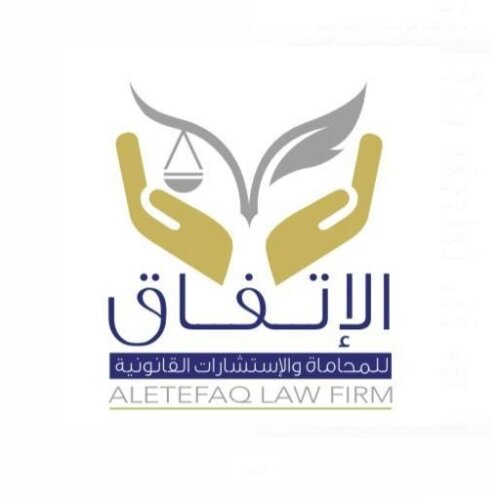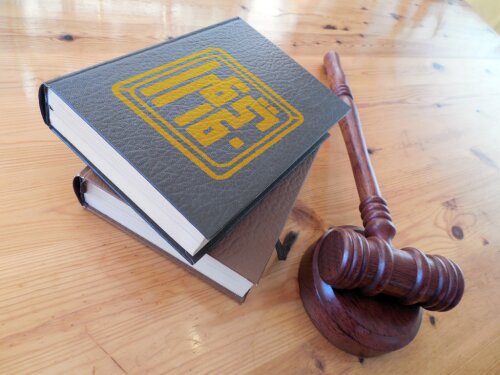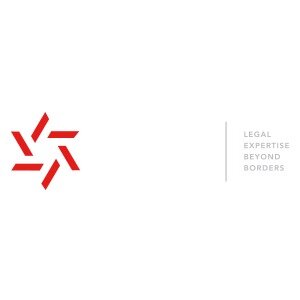Best Juvenile Law Lawyers in Qatar
Share your needs with us, get contacted by law firms.
Free. Takes 2 min.
Or refine your search by selecting a city:
List of the best lawyers in Qatar
About Juvenile Law in Qatar
Juvenile law in Qatar is designed to address and manage legal issues involving individuals under the age of 18. The focus is on rehabilitation and education rather than punishment, reflecting a commitment to guiding young individuals towards a constructive future. The legal framework is shaped by both Islamic principles and international standards, ensuring a fair system that protects the rights of minors while promoting their welfare and reintegration into society.
Why You May Need a Lawyer
Engaging a lawyer in juvenile law matters is often essential due to the complex nature of legal proceedings and the unique challenges involved. Common situations where legal assistance may be required include:
- Criminal Charges: If a minor is accused of committing a crime, they will need legal representation to navigate the judicial process.
- Custody Disputes: Legal support can be crucial in resolving disputes over the custody and guardianship of a minor.
- Child Protection Cases: Lawyers can advocate for the child's rights and ensure their safety in cases of neglect or abuse.
- Educational Concerns: Legal advice may be needed to address issues related to educational rights and accommodations for minors.
- Adoption Proceedings: Legal experts guide families through the adoption process, ensuring compliance with national laws.
Local Laws Overview
In Qatar, the juvenile justice system emphasizes the protection and nurturing of young individuals. Key aspects of local laws relevant to juvenile law include:
- Age of Criminal Responsibility: Children under the age of 7 are not held criminally liable. For those between 7 and 18, different legal measures apply, focusing on education and reintegration.
- Juvenile Court System: Dedicated juvenile courts handle cases involving minors, applying laws specific to the age and development of the individual.
- Rehabilitation and Correction: The system prioritizes rehabilitation over punishment, with programs aimed at correcting behavior and supporting personal development.
- Parental and Guardian Responsibilities: Regulations are in place to ensure that guardians fulfill their duties regarding the upbringing and care of minors.
- Confidentiality and Privacy: Legal proceedings involving minors maintain a high level of confidentiality to protect the identity and rights of the child.
Frequently Asked Questions
1. What is the age of criminal responsibility in Qatar?
The age of criminal responsibility in Qatar is set at 7 years. Minors between 7 and 18 may face legal proceedings, but the approach is rehabilitative rather than punitive.
2. What types of cases are handled by the juvenile courts?
Juvenile courts in Qatar address issues such as criminal charges involving minors, custody disputes, and cases concerning the welfare and protection of children.
3. How does the juvenile justice system deal with minor offenses?
For minor offenses, the focus is on educational and corrective measures, including counseling and community service, rather than incarceration.
4. Are court proceedings for juveniles public?
No, proceedings involving juveniles are not public. The privacy and confidentiality of the child are of paramount importance.
5. Can a juvenile be tried as an adult?
In exceptional circumstances, a juvenile may be tried as an adult, but this is extremely rare and subject to strict legal scrutiny.
6. What rights do juveniles have when arrested?
Juveniles have the right to legal representation, to have a parent or guardian present during questioning, and to understand the charges against them.
7. Are there alternatives to detention for juveniles?
Yes, alternatives such as probation, community service, and educational programs are often used to avoid detention for juveniles.
8. What role do parents play in juvenile proceedings?
Parents or guardians play a vital role in juvenile proceedings, providing support and ensuring the well-being of the child.
9. How are juvenile records handled?
Juvenile records are kept confidential and are not treated as personal criminal records, helping to protect the future prospects of the minor.
10. What happens if a juvenile is found guilty of a serious offense?
If found guilty of a serious offense, juveniles may be placed in a correctional institution that focuses on rehabilitation rather than punishment.
Additional Resources
Several resources and organizations can assist those seeking legal advice in juvenile law in Qatar:
- Qatar Foundation for Child and Women Protection: Offers support and advocacy for children and women.
- Ministry of Justice: Provides legal guidance and resources related to juvenile law.
- Legal Aid Centers: Various centers provide free or low-cost legal assistance to families and minors.
- UNICEF Qatar: Offers information and advocacy on children's rights and protections.
Next Steps
If you need legal assistance in juvenile law, consider the following steps:
- Consult a Lawyer: Engage a qualified lawyer with experience in juvenile law to understand your rights and responsibilities.
- Gather Information: Collect all necessary documents and information related to the case to facilitate legal proceedings.
- Contact Relevant Authorities: Reach out to legal aid organizations or government bodies for guidance and support.
- Prioritize the Welfare of the Minor: Ensure that all actions taken prioritize the well-being and future of the minor involved.
Lawzana helps you find the best lawyers and law firms in Qatar through a curated and pre-screened list of qualified legal professionals. Our platform offers rankings and detailed profiles of attorneys and law firms, allowing you to compare based on practice areas, including Juvenile Law, experience, and client feedback.
Each profile includes a description of the firm's areas of practice, client reviews, team members and partners, year of establishment, spoken languages, office locations, contact information, social media presence, and any published articles or resources. Most firms on our platform speak English and are experienced in both local and international legal matters.
Get a quote from top-rated law firms in Qatar — quickly, securely, and without unnecessary hassle.
Disclaimer:
The information provided on this page is for general informational purposes only and does not constitute legal advice. While we strive to ensure the accuracy and relevance of the content, legal information may change over time, and interpretations of the law can vary. You should always consult with a qualified legal professional for advice specific to your situation.
We disclaim all liability for actions taken or not taken based on the content of this page. If you believe any information is incorrect or outdated, please contact us, and we will review and update it where appropriate.
Browse juvenile law law firms by city in Qatar
Refine your search by selecting a city.















